Serious about beer
Namibia Breweries Limited is a household name every Namibian knows and loves and they have proven that you do not need thousands of ingredients to produce great products.
- Mariselle Stofberg
With the first sip one is taken on a journey. Each product has a distinct profile that allows you to explore the intricacies, not only of the brewing process at Namibia Breweries Limited (NBL), but the production of other non-alcoholic beverages as well.
Even though the intricacy of the beer flavours might have you think an array of ingredients is used, one will be amazed to know that NBL only uses three main ingredients to produce its legendary beers: Malted barley, hops and water.
“Recipes originated from Germany, but we have adapted them to fit Namibia’s climate and Namibians’ taste,” said Christian Müller, brewmaster and manager of brewing and global support at NBL. These recipes are still determined by the German Purity law of 1516.
German Purity Law of 1516
The German beer purity law is known as the Reinheitsgebot, and was introduced in 1516 by Duke Wilhelm IV of Bavaria. According to the decree, the only ingredients allowed in the production of beer are water, malted barley and hops. The original text does not mention yeast as an ingredient, since its existence was not yet known, although yeast was always present and is responsible for the fermentation process to happen.
“Yeast is a living micro-organism that was only identified in the 17th century after the microscope was invented. That is why we still, to this day, say we use only three ingredients to produce our beer,” Müller said.
The Reinheitsgebot remains the most famous law that regulates the brewing of beer and continues to influence brewing, not only in Germany, by law, but also in Namibia, by choice.
NBL uses eight tonnes of malt for every batch produced. Sixteen batches, which is 800 000 litres of beer, are produced on a daily basis. The brewing process takes up to four weeks and NBL always ensures that a continuous process is followed.
Müller said the barley-malt used by NBL comes from selected, certified malteries in Europe and roughly 30 000 tonnes are imported every year. “Malt provides the starch and sugars for beer production, without it there would be no alcohol or carbon dioxide in the beer. Barley, from which malt is produced is a natural ingredient that is also influenced by the weather where it is grown. This is why we buy our malt from all over Europe to always ensure that we produce high quality beers from the best raw materials available,” Müller said.
“Hops is to beer as salt and pepper is to food and adds the taste and flavour to the beer. The amount has to fit the profile of the beer.
“Not too much and not too little, otherwise the beer will not taste good. How much we use is part of our secret recipe behind each brand,” Müller added.
The water used is purified to fulfil the highest quality standards. State-of-the-art water recovery systems help to utilise water to the largest extent technically possible.
Yeast assimilates the fermentable sugars and produces alcohol and carbon dioxide. After fermentation the yeast is removed and can be used again in the next batch.
Career opportunities
Employees within the brewing department range from brewing assistants to process controllers, brewers, senior brewers, brewing team leaders, brewing technologists, brewing administrators, brewmasters and so much more; and it all starts with a brewing apprenticeship.
NBL currently employs three brewmasters and 16 brewers. To become a brewer you ideally need to start with an apprenticeship. The first day of an apprenticeship is about learning how to clean the workplace and equipment properly.
“Many people give up during the first phase, but this is how we are able to identify the motivated, passionate and determined brewers that we require at NBL,” Müller said.
These individuals are then practically trained for three years within all technical, brewing-related departments at NBL.
“If apprentices are not able to speak German, we support them to attend German classes at the Goethe Institute Namibia, because after their training we send them to Germany to the malt factory to learn how malt is produced, and to attend the brewing vocational training college to learn the theory behind the brewing processes,” Müller added.
The training in Germany is done for about nine months, during which the apprentices become fully qualified brewers with a German certificate in the brewing trade - Gesellenbrief.
But the qualification doesn’t have to stop there. Further education to become brewing technologists or brewmasters can be offered as well.
Donwell du Plessis, one of the brewers who trained through NBL’s apprenticeship programme, had the opportunity to become a qualified brewer and complete his training in Germany.
“The apprenticeship journey was life-changing and you have the opportunity to not only learn more about beer, but get the opportunity to immerse yourself in the culture. It is a satisfying career that allows you to continuously produce world-class beer,” he said.
The Swakopmund Brewing Company, a craft beer brewery located at Strand Hotel Swakopmund, offers brewers the opportunity to develop new craft products and recipes, which allow the brewers opportunities to live out their creativity.
Brewing is an intricate process, but some argue that the way it is consumed also influences the taste. A debate amongst people is the impact the medium i.e. glassware used has on the experience and taste of the beer.
“What the beer looks like, how it smells and what it tastes like is all dependent on how it is consumed, because all your senses work together,” Müller said.
This is also influenced by one’s personal preferences. What you like is what you like, there is no right or wrong.
Corporate culture at NBL
As of August 2019, the company had a total of 916 permanent and temporary employees.
“NBL is a vibrant, friendly environment where everyone is valued and appreciated. We have fun enabling everyone to be the best versions of themselves, and also believe that everyone is unique in their own way,” said Anna Haule, lead: people development at NBL.
“At NBL our focus is not only on producing quality products, but to ensure that our employees are taken care of at all times,”
Development and the well-being of employees is key, enabling all to unlock their unlimited potential, not only to benefit themselves and their families, but also the country at large, Haule said.
“This is in line with our Ohlthaver & List (O&L) purpose ‘Creating a future, Enhancing Life’.”
Product portfolio
NBL beers: Windhoek Lager, Windhoek Draught, Windhoek Light, King Lager, Tafel Lager, Tafel Light, Camelthorn Urbock, Camelthorn Indian Pale Ale (IPA), Camelthorn Helles Beer and Camelthorn Weiss Beer.
Licenced beer, beer mix and soft drinks: Heineken, Amstel lager, Club Shandy, Tafel Radler and the McKane range.
CAPTIONS
Photo 1: An aerial shot of NBL in Windhoek.
Photo 2: An aerial shot of NBL in Windhoek.
Photo 3: The ‘Brewers Bible’ used by all brewers.
Photo 4: Cureso Bull, a senior brewer at NBL.
Photo 5 and 6: NBL is a household name every Namibian knows and loves.
Photo 7: Bianca Nawes, a lab technician at NBL, doing yeast analysis in their laboratory.
PHOTOS MARISELLE STOFBERG AND CONTRIBUTED.
ILLUSTRATION BY HEIKE LORCK


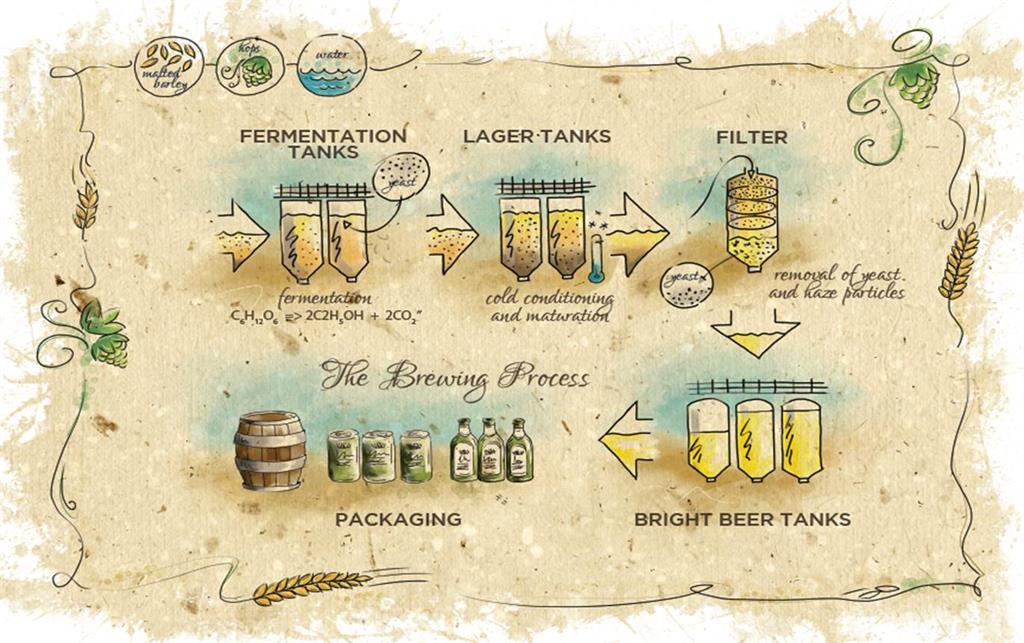
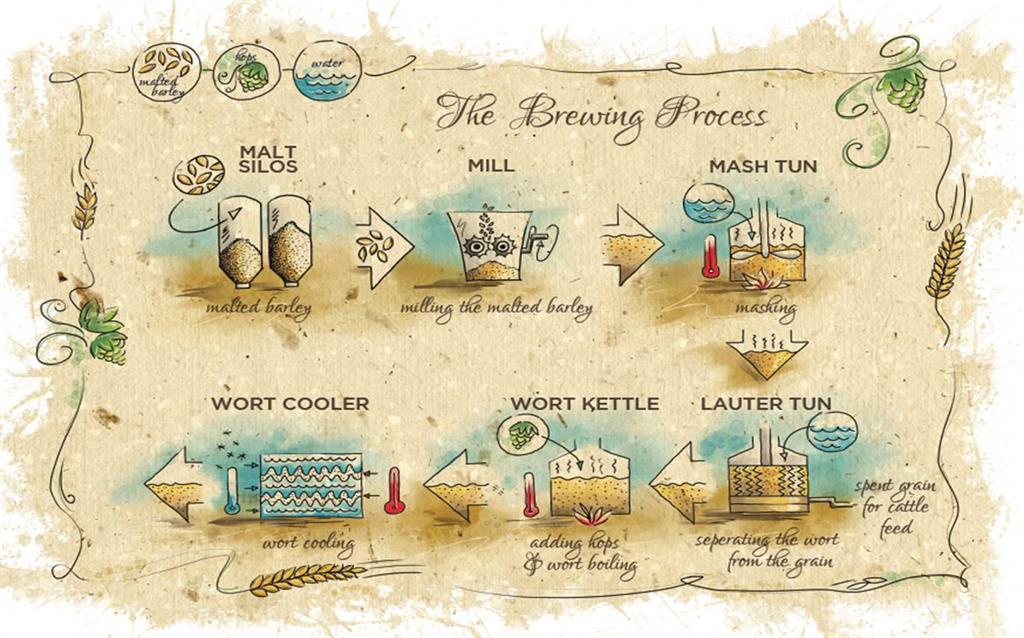
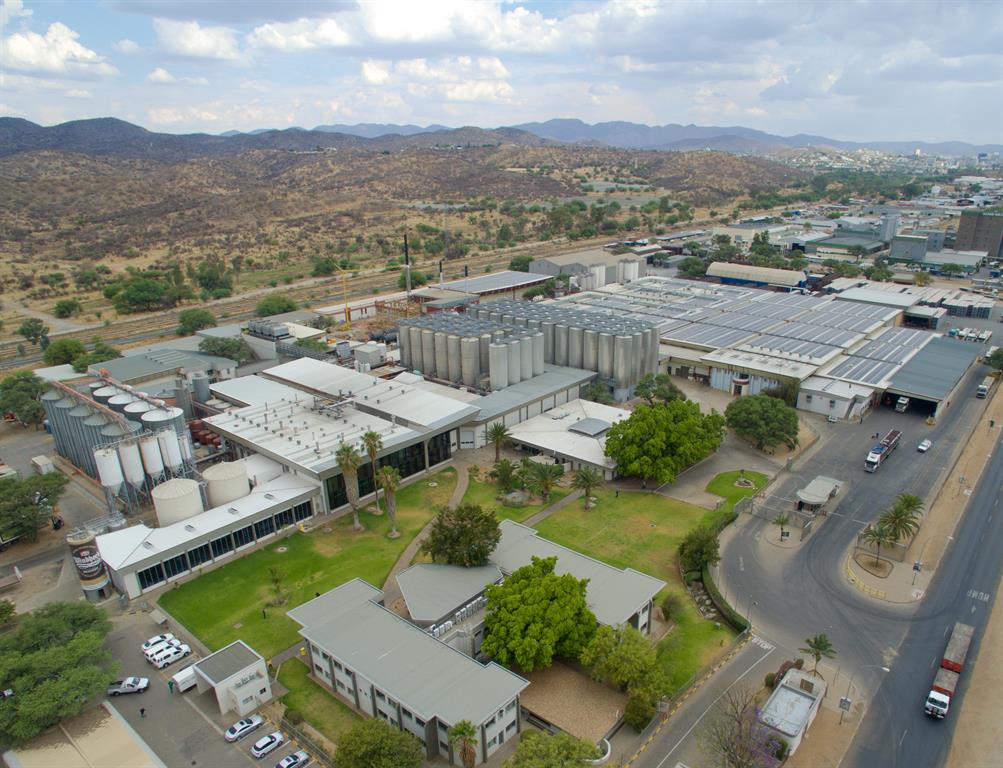
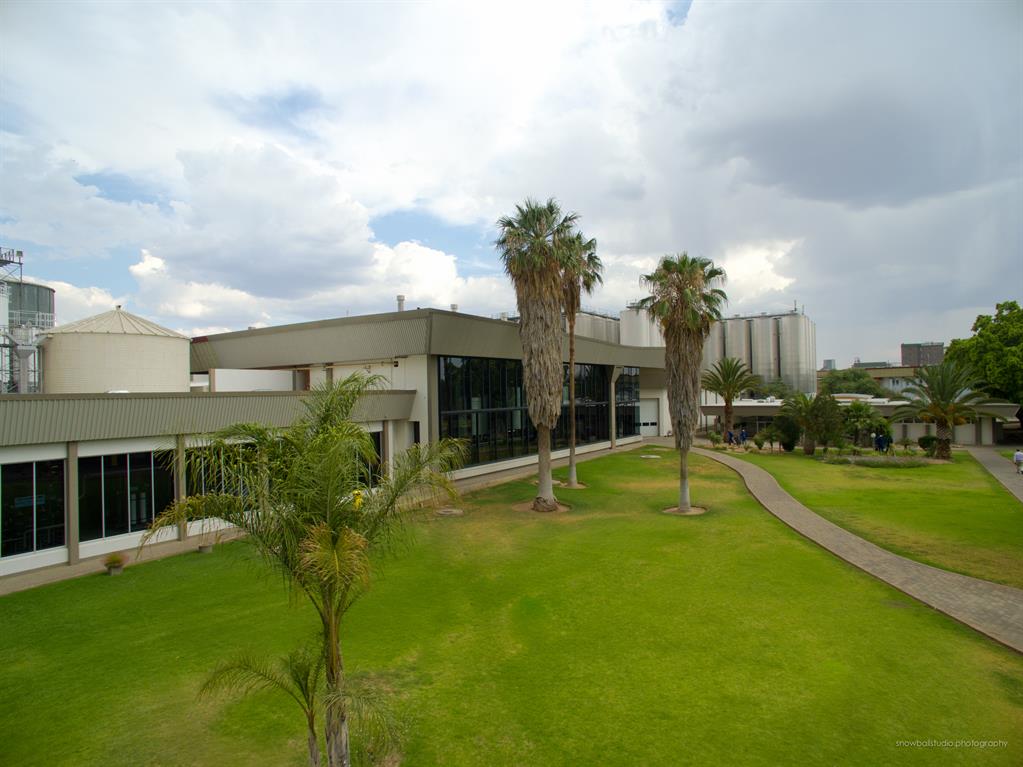
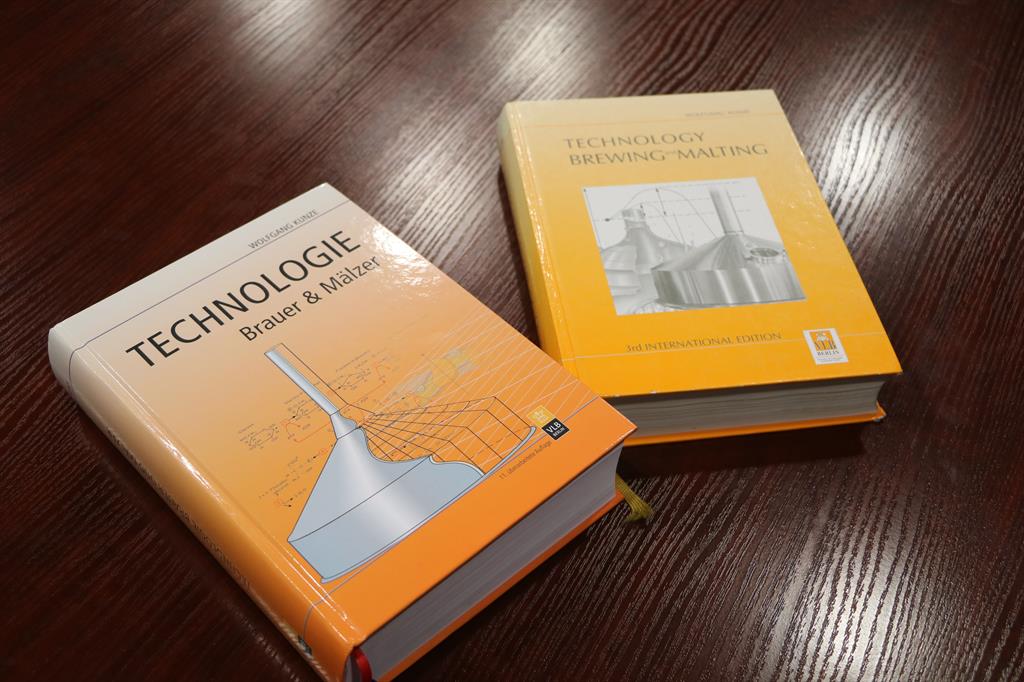
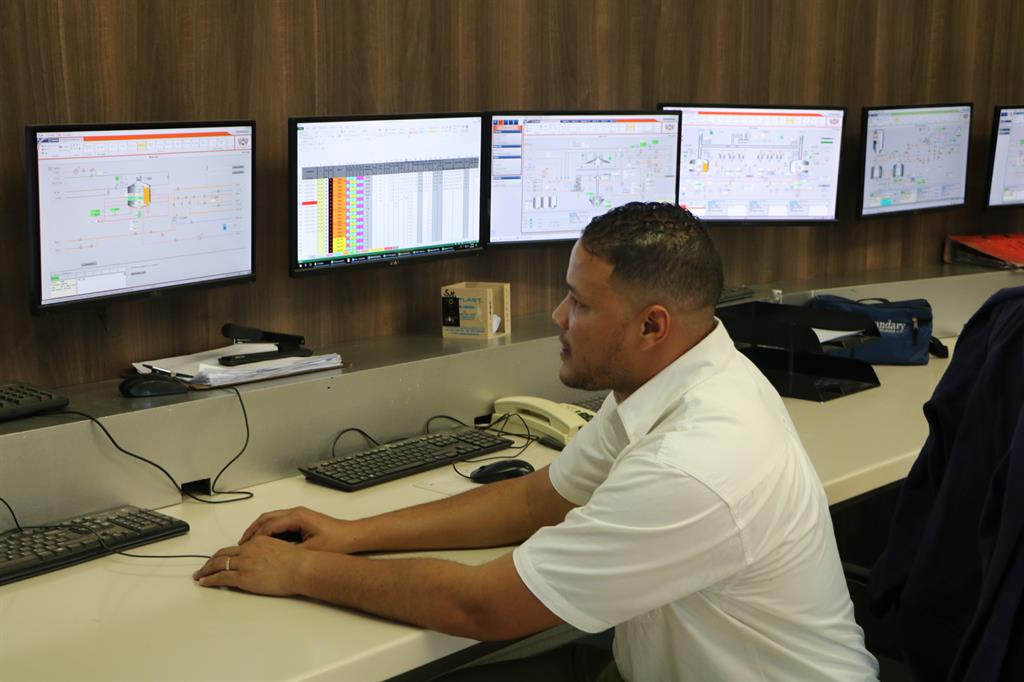
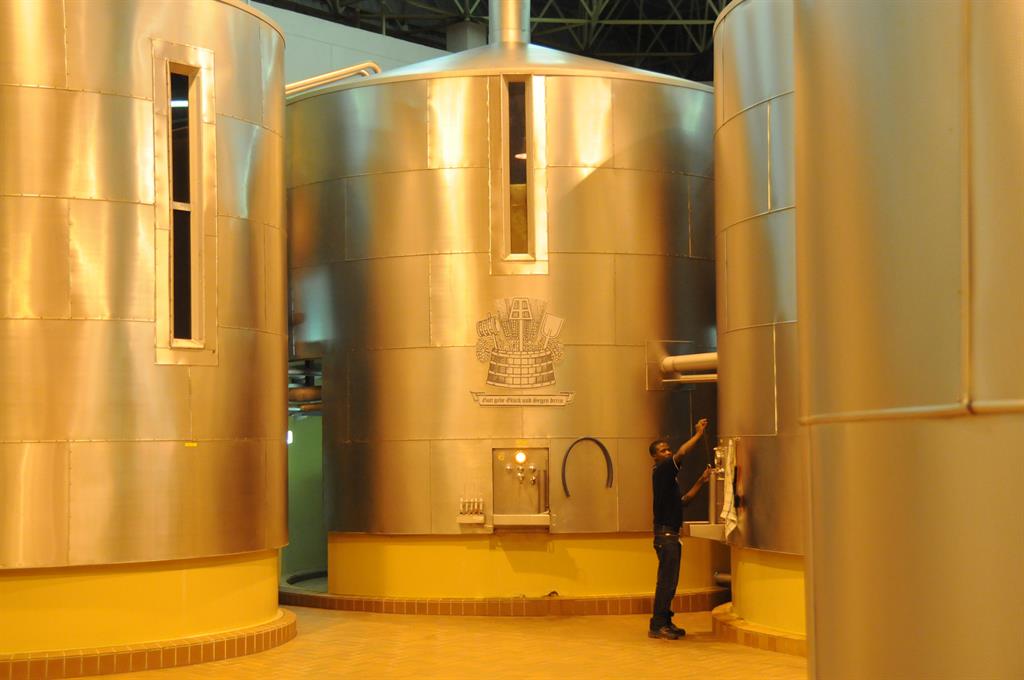


Kommentaar
Republikein
Geen kommentaar is op hierdie artikel gelaat nie